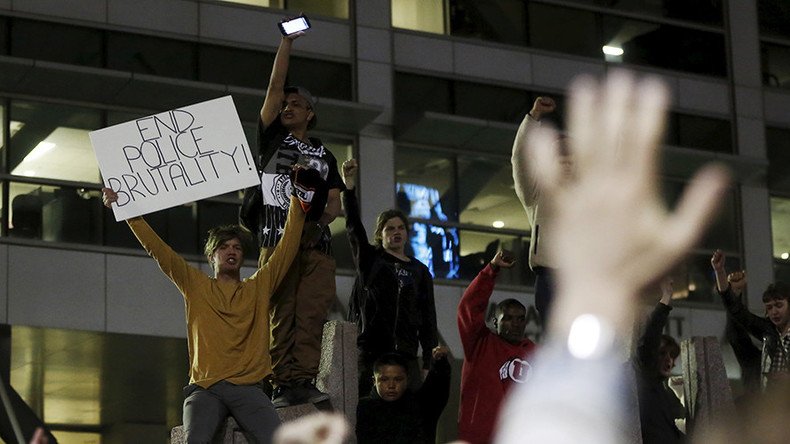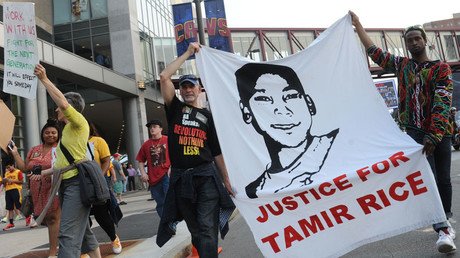Policing the police app: ‘New technology allow citizens to hold officers accountable’

Americans should film and record their interactions with law enforcement in order to hold police officers accountable for their misconducts, Sara Mokuria from the Institute for Urban Policy Research told RT.
US activists are increasingly turning to cameras to draw attention to misconduct by law enforcement.
RT: Do you think ordinary people should monitor policemen and call them out on wrongdoing?
Sara Mokuria: I believe that citizens should hold public servants such as police officers accountable for their actions both while they are on duty and while they are not.
RT: Is it legal to be posting videos of wrongdoing by police officers online?
SM: Honestly, the use of citizen video cameras while interacting with police officers is what has brought attention to the rampant lack of accountability and breaking of the law by law enforcement. I believe that it is a very courageous and righteous thing for citizens to do. It is very courageous, because they are risking having violence brought upon them by police officers by videotaping them. But by videotaping them they are allowing the broader public to see what actual policing is like day to day. A perfect example of the usage of video by citizens that really opened our eyes to the issues of police brutality is the case of Eric Garner in New York City.
RT: There was a case when a woman filmed an officer speeding and then he took revenge on her and posted pictures of her and information about her online. Should people who call out police officers fear something like that happening to them?
SM: In terms of police personal information being shared, I think we live in an age of rampant access to personal information. We as a society and as a world have not established boundaries for interaction via Facebook, other social media outlets, cellphone numbers and addresses. So I believe that we as a society need to come up with ethical standards around how to use that personal information. But I also think that, when people are using police information in that way it is a very last resort to try to create some form of accountability for the rampant injustices that is happening in our country.
RT: There have been a great number of cases of police brutality. Is filming incidents of their wrongdoing the only way to stop these cases?
SM: There is an app that has been created which encourages you to film; video record and audio record your interaction with police officers to create a data base of what interactions with police officers are like. That is one thing that we encourage people to do: film and record their interactions with police officers. Another action that citizens can take is recording mentally what that officer’s badge number is and then making a citizen complaint with the police department.
However, the issue is: when citizens try to do these tactics, which are lawful things to do, often times police officers take it as a threat and become very aggressive. People have to be aware, even when you are in your full legal right, you still may be put in a position of peril.
RT: Do you think more people should have their eyes open and phones at the ready to call out and film police officers when they are breaking the law?
SM: Yes, absolutely. And the reality is there is a long history of monitoring police officers from the Black Panthers of the 1960’s until now. So this is not a new tactic. We just have new technology that is available to citizens in order to hold police officers accountable. The video footage is growing the awareness among the broader and more diverse population, because people are now not able to deny the reality of what policing is like in different neighborhoods, different cities and different zip codes. I think it’s a wonderful thing that we have – this technology that helps us see and exposes what policing in America really is like.
The statements, views and opinions expressed in this column are solely those of the author and do not necessarily represent those of RT.













